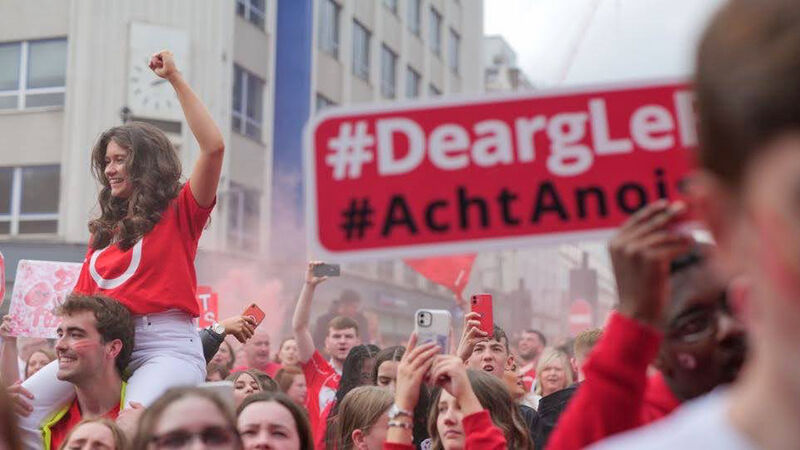Irish Examiner view: Irish language should have its place in the daily life of the North

Protesters at the Irish language rights demonstration in Belfast city centre. Picture: Bayview Media/Dream Dearg/PA Wire
Try from €1.50 / week
SUBSCRIBEThere was impressive turnout in Belfast in support of the Irish language law. The campaign network An Dream Dearg “the red group” is demanding “language recognition, respect and rights” and legislation along the lines of the 1993 Welsh Language Act. To that extent, supporters should be pushing against an open door.
Legislation has already been promised, although previous plans have stalled in the fractious climate of the North. In his visit last week, British premier Boris Johnson pledged to deliver a portmanteau cultural package in the coming weeks which would include an “office of identity and cultural expression”, as well as an Irish language commissioner and a commissioner to develop language, arts and literature “associated with the Ulster Scots/Ulster British tradition”.
Already a subscriber? Sign in
You have reached your article limit.
Annual €130 €80
Best value
Monthly €12€6 / month
Introductory offers for new customers. Annual billed once for first year. Renews at €130. Monthly initial discount (first 3 months) billed monthly, then €12 a month. Ts&Cs apply.
CONNECT WITH US TODAY
Be the first to know the latest news and updates
Newsletter
Sign up to the best reads of the week from irishexaminer.com selected just for you.
Newsletter
Keep up with stories of the day with our lunchtime news wrap and important breaking news alerts.
Newsletter
Sign up to the best reads of the week from irishexaminer.com selected just for you.
Monday, February 9, 2026 - 5:00 PM
Monday, February 9, 2026 - 7:00 PM
Monday, February 9, 2026 - 8:00 PM
© Examiner Echo Group Limited